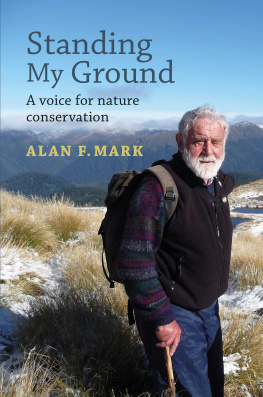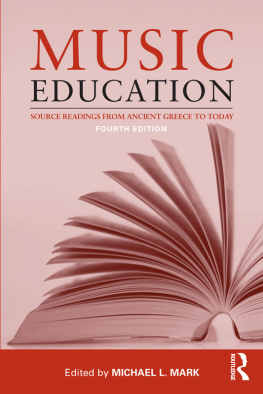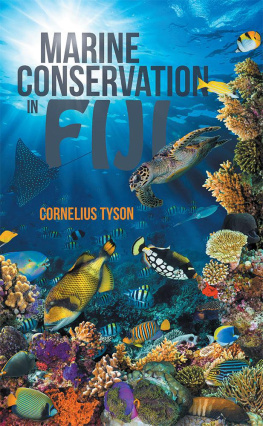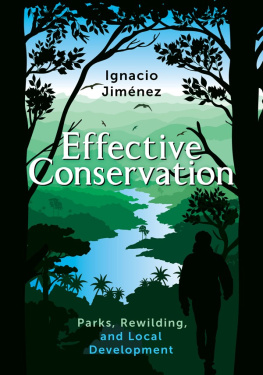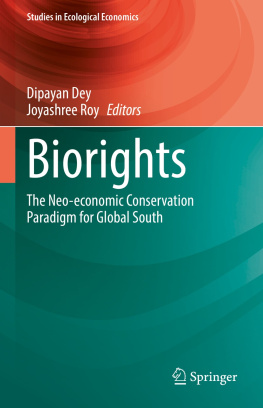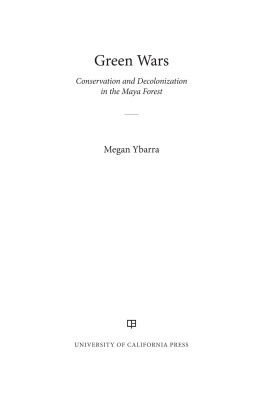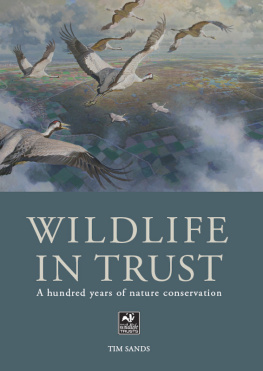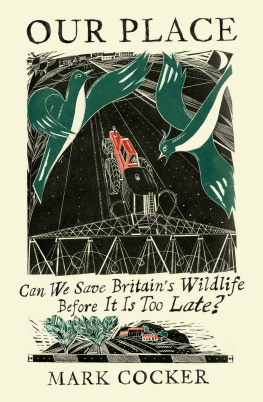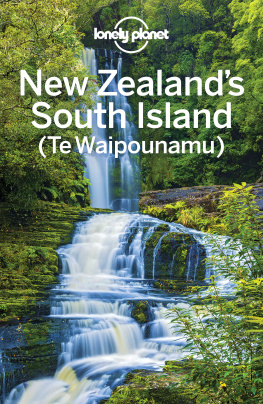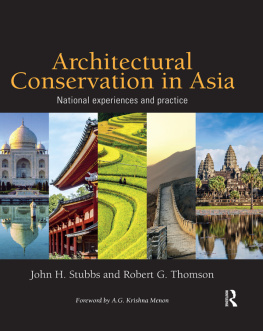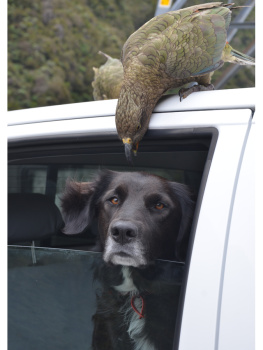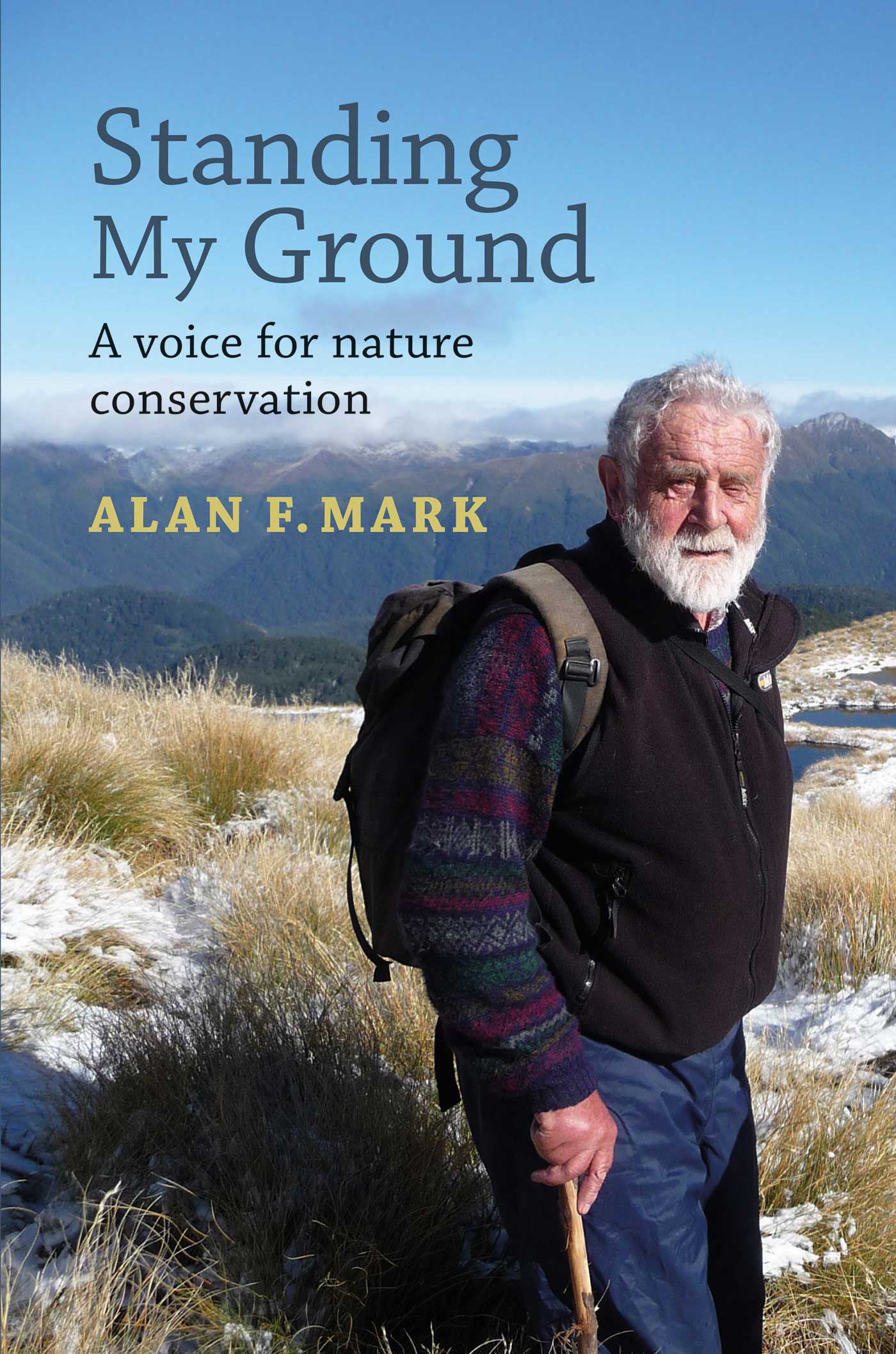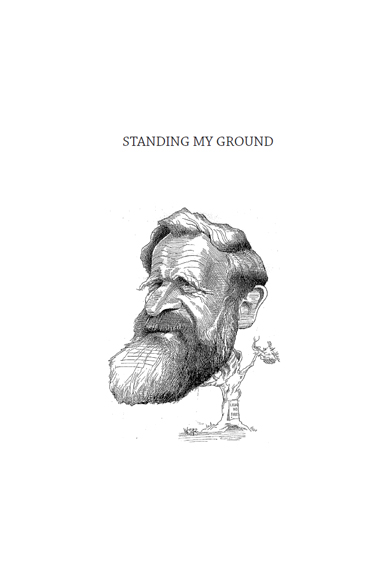Over my lifetime Ive witnessed continued losses of a wide range of our unique natural heritage, from ocean depth to mountain top, and can see that nature conservation is increasingly challenging for us. Sadly conservation seems mostly involved in reducing the rate of loss of our precious heritage. Real gains are the exception, therefore ecosanctuaries are important for conservation and for education. Support for our Orokonui Ecosanctuary is essential to help turn the tide.
ALAN MARK
Statement by Alan Mark for the Place exhibition of sculptures by Louisa Baillie, Dunedin, February 2012.
Published by Otago University Press
Level 1, 398 Cumberland Street
Dunedin, New Zealand
university.press@otago.ac.nz
www.otago.ac.nz/press
First published 2015
Copyright Alan F. Mark
The moral rights of the author have been asserted.
ISBN 978-1-927322-04-8 (print)
ISBN 978-0-947522-74-2 (Kindle Mobi)
ISBN 978-0-947522-75-9 (EPUB)
ISBN 978-0-947522-76-6 (ePDF)
A catalogue record for this book is available from the National Library of New Zealand. This book is copyright. Except for the purpose of fair review, no part may be stored or transmitted in any form or by any means, electronic or mechanical, including recording or storage in any information retrieval system, without permission in writing from the publishers. No reproduction may be made, whether by photocopying or by any other means, unless a licence has been obtained from the publisher.
Editors: Richard Reeve, Jane Connor
Design/layout: Jane Connor
Index: Diane Lowther
eBook conversion 2017 by meBooks, New Zealand
Cover photograph: Bridget Mark. Frontispiece cartoon: Murray Webb
FOREWORD: A LIFE IN SCIENCE FOR THE PUBLIC INTEREST
Sir Geoffrey Palmer
The University of Otagos Emeritus Professor of Botany, Sir Alan Mark, stands out as a remarkable New Zealander and he has written a book like no other I have ever read. It contains a meticulous account, written in clear, unemotional prose, of many great struggles to preserve New Zealands incomparable environment, particularly in the south. Sir Alan is certainly a voice for conservation, as the books subtitle attests, and what a powerful, influential and persistent voice his has been.
The title, Standing My Ground, appears to me a polite reference to the consequences New Zealanders often suffer for speaking out on public issues, especially conservation. Development in New Zealand has exacted a heavy toll on the environment, and the issues seem to recur in every generation.
The great struggles over the National Development Act 1979 and its fast-track development finally led to the Resource Management Act 1991. But there are no final victories in politics: efforts to tilt the balance away from the environment and toward development have been persistent. In recent times the intensification of agriculture, especially dairying, has raised serious issues for water quality. Sir Alan has championed the environment throughout these struggles, raising the voice of scientific reason. For this he has often been attacked by those who favour economic gain above all things.
The internationally accepted principle of sustainability teaches that development must take place within the capacity of ecosystems to support life. As the Rio Declaration declared in 1992: In order to achieve sustainable development, environmental protections now constitute an integral part of the development process and cannot be considered in isolation from it. In New Zealand we need new mechanisms of ecological governance that aim to improve the management of natural systems, not degrade them. A human right to a clean and healthy environment is likely to arrive as a legal principle sooner than we think.
Alan Mark is a loyal son of the south. Born in Dunedin and brought up in modest circumstances in Kaikorai Valley, he was invested at an early age with a love of the outdoors through his fathers activities: shooting, camping in the Catlins and elsewhere. At Mosgiel District High School he was the only sixth-former in his year but he went off to Otago University and studied botany, zoology and chemistry, achieving an MSc (first-class honours) in plant ecology.
A Fulbright Travel Grant enabled him to study for a PhD at Duke University in the United States, and while there he married fellow Otago botany student Patricia Davie. After extensive fieldwork in challenging environments, including encounters with black bears in the Great Smoky Mountains National Park, Alan Mark returned home to work at the Otago Catchment Board, of which years later he would become an elected member. His first research project focused on the tussock grasslands of the Otago high country, which were to remain an abiding interest.
Sir Alans published research on snow tussock upset some high-country runholders and hydrologists. He stood his ground in the face of attacks by one particular runholder, and the controversy simmered for many years. As a result of his efforts much tussock has been preserved. The South Island high country has benefitted enormously from Sir Alans copious research.
Perhaps his most famous victory was the campaign to preserve Lakes Te Anau and Manapouri, a conservation battle that lasted 13 years. The issue revolved around a proposal to raise the lake levels in order to feed a hydro-electric plant that would smelt aluminium at Bluff. In those days the Ministry of Works and the New Zealand Electricity Department carried out no environmental impact assessment. The Botany Department at Otago University was approached by the DSIR. Sir Alan was tasked with carrying out a survey and some of his public comment incurred the wrath of officialdom. Today, New Zealand universities have a statutory duty to act as a critic and conscience of society, and they cherished those values even before the law was enacted.
A massive public petition to parliament to save the lakes gathered 264,000 signatures. Manapouri became a significant issue in the 1972 general election, and the many twists and turns are all carefully set out in this book. In the end the lake levels were preserved, and the government established the Guardians of Lakes Manapouri and Te Anau.
Sir Alan remained one of the guardians until 1999, and even after that he continued to publish research on the subject. His conclusion is arresting: My greatest satisfaction, however, has been being able to convey to the wider public the value of natural areas and the significance of integrating ecological principles with the sustainable use of our natural resources.
Sir Alan has served on at least 10 quangos (quasi non-governmental organisations). His chapter on these organisations offers many insights into their curious and byzantine interactions with the political establishment in Wellington, including the ways in which the policy-making process may be influenced. The methods used by public servants to shield ministers make up a fascinating sub-text.
Sir Alans involvement with the Royal Forest and Bird Protection Society of New Zealand was driven by the conviction that scientists on their own are often politically impotent when it comes to conservation issues. Yet, mobilising support for these issues in New Zealand is difficult because commercial and farmer organisations work hard to get their own way within the councils of the government, and they frequently succeed. The methods of science are rigorous and subject to peer review, but the question of who pays for the research can influence both its content and its reception. There are many illustrations of this tendency in the book.

